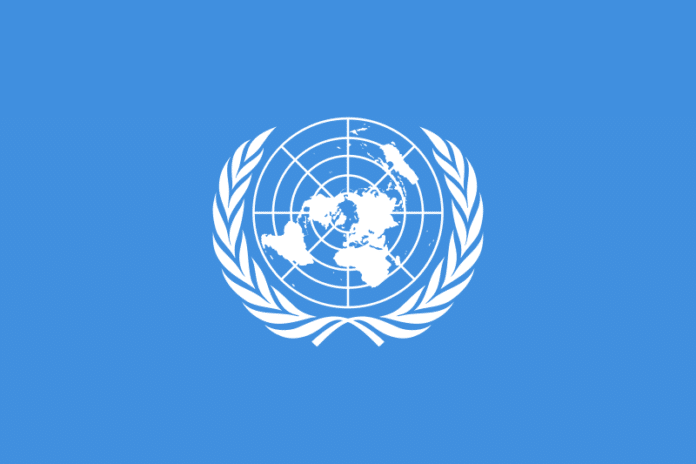Il Segretario Generale
—
Osservazioni in occasione della conferenza stampa congiunta con il Presidente portoghese Marcelo Rebelo De Sousa e il Presidente del Kenya Uhuru Kenyatta alla Conferenza delle Nazioni Unite sugli oceani
Lisbona, 27 giugno 2022
***
Dear representatives of the media, welcome.
I am pleased to be in Lisbon to help launch the United Nations Ocean Conference, generously hosted by Kenya and Portugal.
And I feel that very personally today.
Standing here, my mind goes back to the 1998 World Expo with a focus on the ocean that Portugal hosted while I was Prime Minister. And the present Prime Minister was the Minister in charge of organizing the Expo.
Almost a quarter century later, this conference comes at a critical moment.
As I said earlier today, we are facing what I would call an “Ocean Emergency”.
Our oceans are issuing an SOS.
They are struggling, heating and acidifying.
Corals are dying.
Coastal ecosystems, such as mangroves, seagrasses and wetlands, are being degraded.
Fisheries are being depleted and the ocean is choking in plastic waste.
We must work together to right these wrongs.
We live in a world of limited, finite resources.
But we treat them as if they are endless.
And this must change.
From sustainable aquaculture to green shipping and protecting and restoring coastal ecosystems, we all have a role to play – governments, business and industry, ocean communities and individual consumers.
And there is some good news.
There has been significant progress on a legally binding instrument on the conservation and sustainable use of marine biological diversity of areas beyond national jurisdiction.
A new treaty is being negotiated to address the global plastics crisis that is choking our oceans.
And just a week ago we saw multilateralism in action with a World Trade Organization agreement on ending harmful fishery subsidies.
But much more needs to be done.
And I hope to see more progress from this week’s conference.
It is time to stop neglecting the health of our oceans.
It is not a rubbish dump.
It is not a source of infinite plunder.
It is a fragile ecosystem on which we all depend – for oxygen, for climate regulation and for food.
We must take action.
We must be focused on solutions.
And we must sustainably manage the ocean’s resources for the good of humanity and the health of the planet.
And that is what this Conference is about.
Thank you.
Q: I am from the Associated Press. I had a question for the Secretary-General. You mentioned in your speech this morning and just now as well about the significant progress that’s been made on the treaty for the high seas.
Of course, we have the last mile ahead of us now, which is usually the hardest. I just wondered what do you see are the main obstacles that are still there and what you think this conference can do to help overcome them?
SG: First in relation to the first question of the centrality of people. This conference reminds me of when I was a young boy and going to the village of my grandparents, which was a village surrounded by forests and the forests tend to have fires.
And I remember that when there was a fire, the bells of the tower of the church would ring with what we say in Portugal “tocar a rebate” so dramatically sounding the bells. Now, “tocar a rebate” for what to bring everyone to fight the fire. Because it was the people – at the time the fire brigades were far away – and so it was the people who assumed the protection of the forests.
Now, this conference is similar. We are a “tocar a rebate,” dramatically sounding the alarm bells. We urge everybody to put pressure on their governments, on their municipalities, on the companies where they work, on their communities and societies. To say that to rescue the oceans is absolutely essential today, and to rescue the oceans we need the people leading.
There will be a number of side events around this conference whose objective is to mobilize the general public, to mobilize the people because it is clear that how decisions are being taken today, we are still far from what is needed to be done, to rescue the oceans. We are still losing the battle for protecting the oceans.
So, we need to make the people keep pressure on those that decide to make sure that we are indeed able to rescue the oceans.
Now, if I may answer, with one single one word about the obstacle. Egoism. We are dealing with the protection of biodiversity in international waters. But some people still think that they are powerful enough to think that international waters should be theirs.
I think it’s important to make everybody understand that international waters are ours – for all countries and all peoples of the world.
Q: Sirs, what is the role of Brazil in the goal of preserving 30 percent of the maritime region? That is very important for Brazilian press and the world press.
SG: Brazil has a very large coast, as we all know. So, Brazil is a fundamental, fundamental country in the preservation of the oceans and in guaranteeing that we are able to reverse the present trend in the world, in which, as I mentioned, we are still losing the battle in preservation of the oceans.
I count on Brazil, on the conscience of the Brazilian people, to also assume this as a very important priority in a country, that of course has Amazonia, is an extremely important natural asset but has a huge coast, probably one of the biggest in the world. And so, the role of Brazil is absolutely essential.

